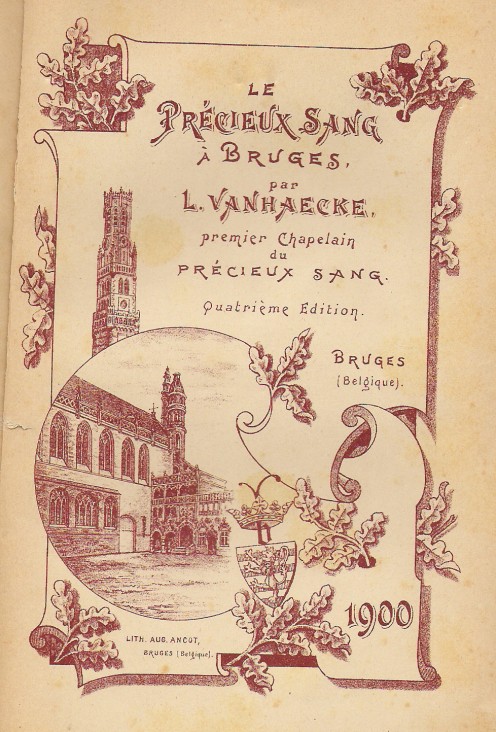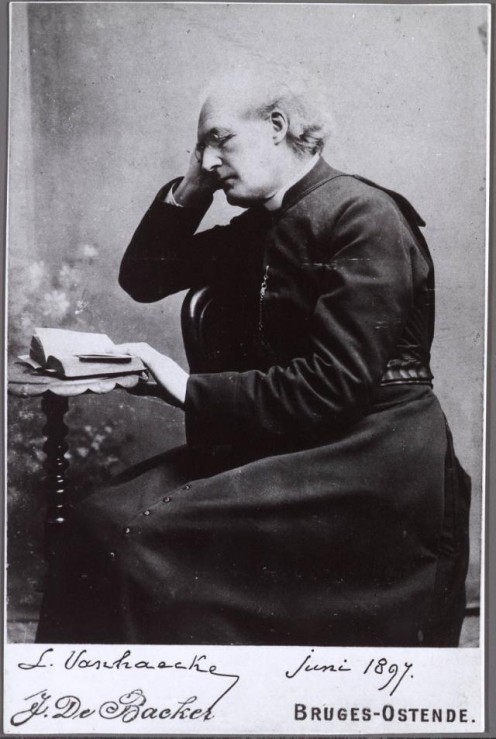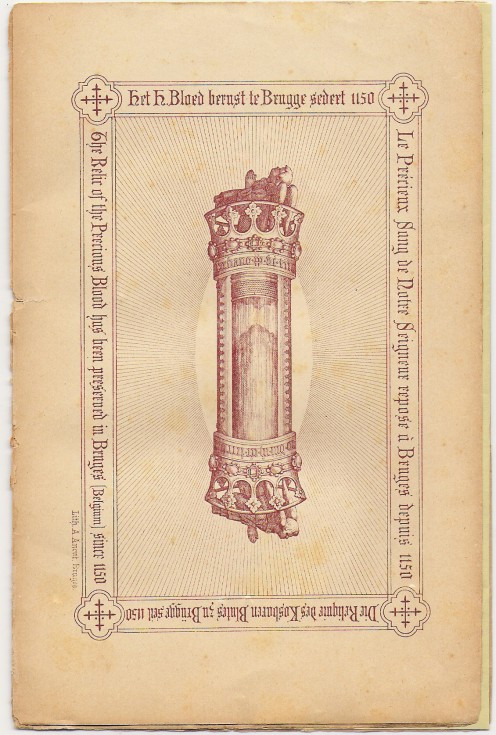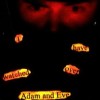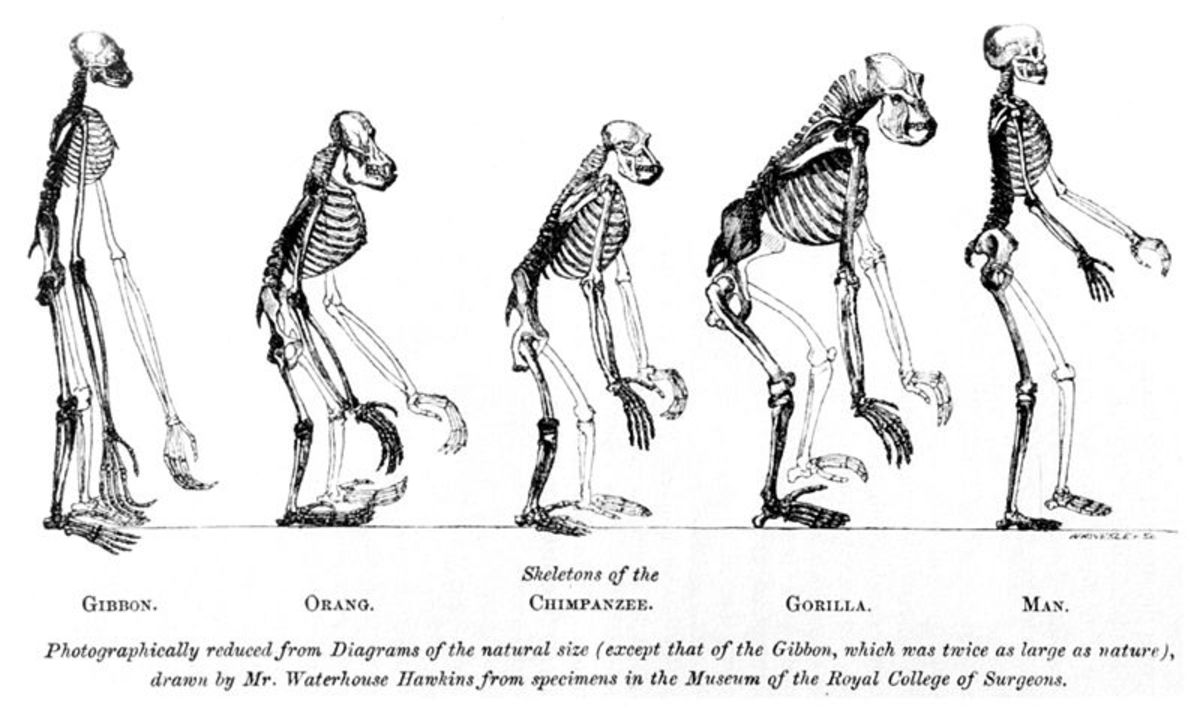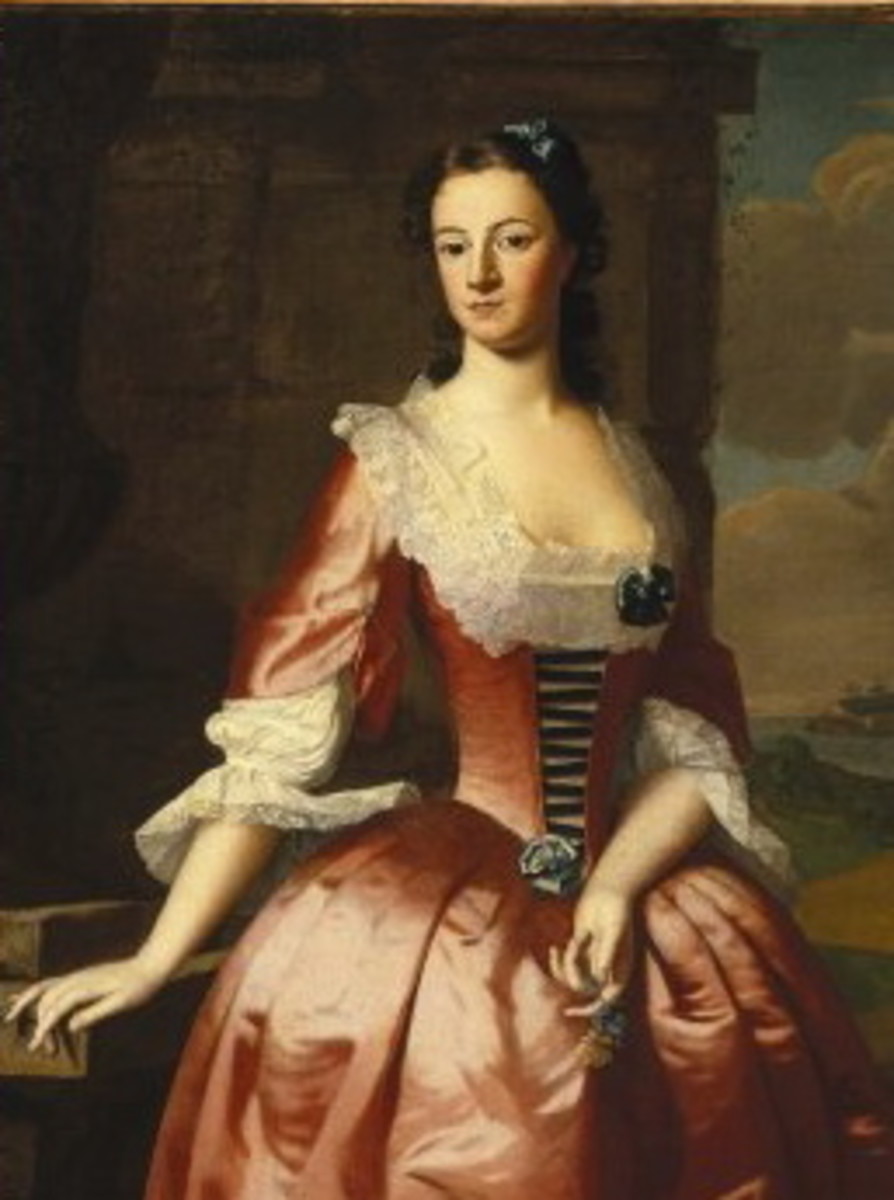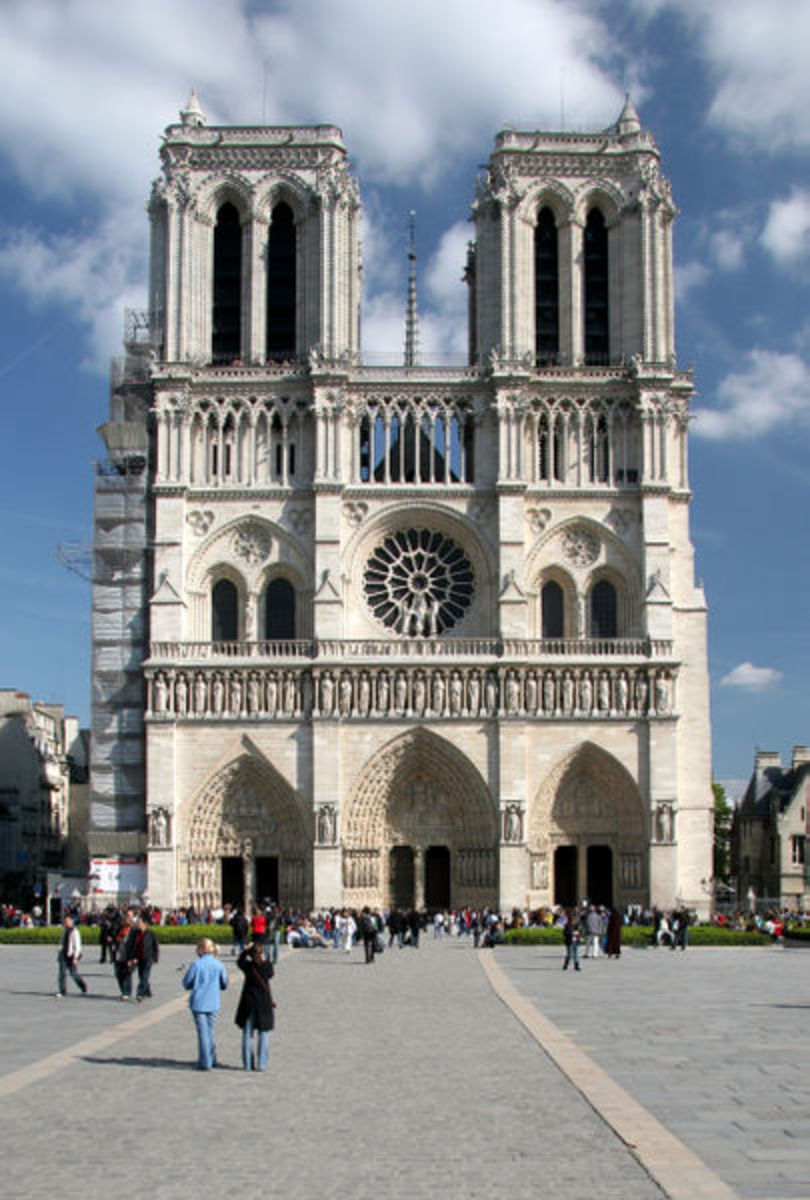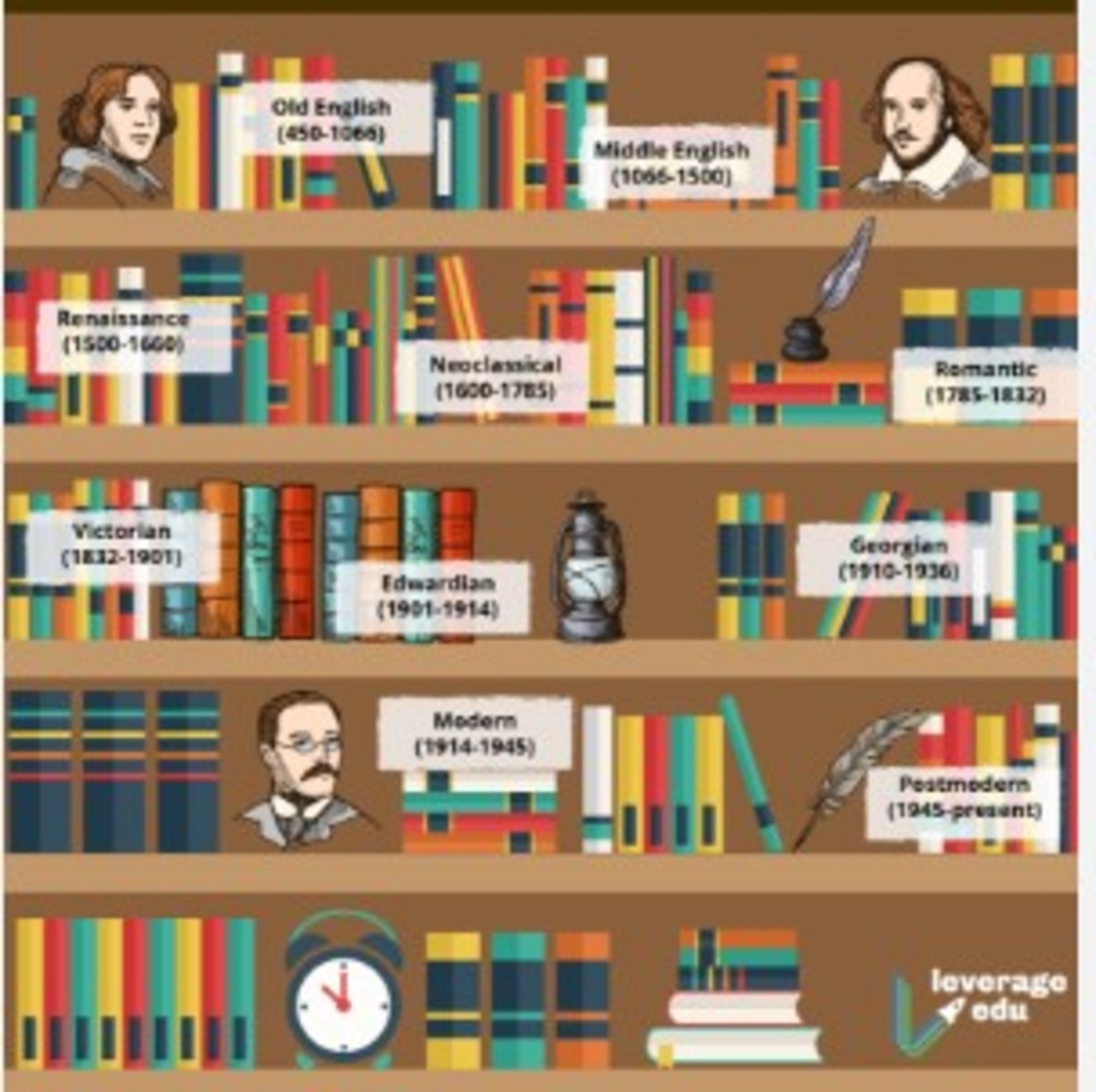Joris-Karl Huysmans and the Essence of Decadence
The French writer Joris-Karl Huysmans started his career as a naturalist, but with "A Rebours" ("Against Nature") he wrote "the bible of decadence" and with "Down There" a history of satanism, facts turned into fiction, and a masterpiece of occult horror...
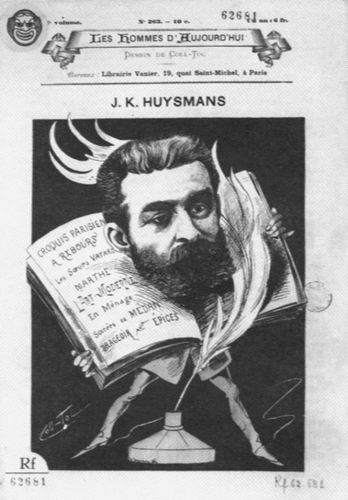
Joris-Karl Huysmans was the son of a French schoolteacher and a Dutch painter, printer and litographer who had settled in Paris. Charles-Georges Huysmans was born in the Latin Quarter, where his father was painting miniature illustrations for prayer books and his mother was selling them in their shop. Much of his life was spent withing walking distance of the Church of St Séverin: as a child in the rue Suger, and later in the rue St Sulpice and the rue de Sèvres. Charles was a sickly child, affected by the lugubrious atmosphere of the Dutch and Belgian convents he visited, because some of his father's relatives lived there.
His father died when he was eight years old and his mother moved in with her parents, in the somber quarters in the rue de Sèvres, that once had been a monastery. Along wide corridors, the high-ceilinged cells of the monks, connected by doorways, formed cavernous apartments. His mother found work in a store and packed Charles off to a boarding school, where his sense of abandonment grew while he was obliged to eat foul school food and suffered from the bullying of the older boy's or the discipline monitors. Within a year, Malvina remarried. Jules Og invested his money in a bookbindery in the rue de Sèvres apartment block and the marriage also produced two daughters, whom Charles' mother preferred to her son. His bitterness about this only reflected in his work in a certain mysogy and a general silence with respect to his mother. Later he would adopt the pen name "Joris-Karl", the Dutch version of his French given names, thus recalling his father's origins. But it was more than a pen name: in his adult life all his intimates knew him as "J.K." - which were also the Dutch initials of Jesus Christ ("Kristus").
At age sixteen he lost his virginity, money and a precious bottle of cologne to a prostitute and by the time he was eighteen, he took a job in the Ministry of the Interior. His civil-service position was intended to seem him through law school, but it were the cafés of the Latin Quarter who saw him until the wee hours of the night, talking literature. He fell in love with an actress and left her flowers and ironic poems in the Bobino nightclub where she worked. He set up housekeeping with the showgirl, adoring her refined lovemaking techniques and the black corsets she got in (and out). But when the showgirl became pregnant, and not by J.K., she soon disappeared from his life.
In the summer of 1870 J.K. was called to face the invading Prussians with the 6th battalion of the Mobile Guard. His unit set off for the front, but J.K. got dysentery and spent the war in the military hospitals of Rheims, Paris, Arras, Rouen and finally Evreux, where he was nursed and spoiled by a Sister Angèle. In September he went home, just in time for the siege of Paris - and there, amid the bombardments, the food shortages and crimes committed in the dark streets of the City of Light, his life for the first time began to merge with the fiction he wrote. He begon to take notes for a novel to be entitled "The Hunger" ("La Faim") that never was published.
Huysmans returned to his job at the Ministry of the Interior, but had to flee with the government when the Commune rebellion engulfed Paris. After the brutal repression of the popular uprising, he returned to Paris and spent hours in the Louvre with the paintings of the Dutch masters. He started writing a war memoir and a romantic play, but his first publication was a collection of vignettes, which have been compared to the prose poems of Charles Baudelaire. The "Dish of Spices" ("Le Drageoir à épices") first was published at his own expense, but after some favorable reviews the collection of little scenes and prose poems was republished by a paying editor.
J.K. had a brief affair with Anna Meunier, a working girl in the dress-making industry who would later become his steady partner. When his mother died, she left him the bookbindery in the rue de Sèvres and two half sisters to support. He undertook an "objective fiction story" in the purest naturalist vein: a slice of life which would show, through a "scientific study" of facts, the workings of determinism. The subject for his fictional sociology would be the life of the prostitute "Marthe". Having his book in press in Brussels, Huysmans cleverly avoided the censorship in France.
The writer was now introduced into the group of naturalists of which Zola was the theorist. Together with Guy de Maupassant and others, the group met regularly in Zola's apartment and defended his work in the press. Their credo was a depiction of reality as determined by the laws of cause and effect, heredity and environment. The novelist had to approach his subject in a scientific and objective way. Huysmans reworked his army memoirs in a story that mixed autobiography with fiction. In "The Vatard Sisters" ("Les Soeurs Vatard") he described the effects of poverty and hard manual labor on Désirée and Céline, two underclass sisters. Subjective sexual undertones were shining through this seemingly objective account, which also introduced a perverse or perverted character of a degenerate artist.
By 1877, Anna Meunier was a single parent to two daughters who owned her own dress shop. She and J.K. lived apart, but they often spent weekends together. Anna became the prototype of Jeanne, the sexually unfaithful mistress of the writer André Jayant in "Living together". In 1882, J.K. published another life-into-fiction or "faction" story, recounting the misadventures of a lonely unmarried civil servant, suffering from a severe chronic dyspepsia ("A vau-l'eau", translated as "Down Stream"). In these novels, the physical world is degenerating or disintegrating and life is a one-way trip to the tomb. J.K. felt both a violent attraction and a sickening repulsion towards women. The sexual act was nothing more than a brief respite between lust and disgust. In the meantime, Anna was gradually dying of a degenerative brain disease and J.K. himself began to experience periods of impotency. To his Belgian editor and fellow writer Théodore Hannon, with whom he had visited the museums of Brussels in the daytime and the brothels by night, he wrote that he was dreaming of dressing his goddess in bizarre costumes to stimulate himself a little.
Despite these problems, J.K. was writing highly subjective art criticism, welcoming impressionism and admiring the - antinatural - work of Gustave Moreau and Odilon Redon. J.K. Huysmans was recognized in literary circles, spoke to Gustave Flaubert, was in correspondence with the leader of the symbolist poets Stéphane Mallarmé, came to the aid of Paul Verlaine when he consumed too much absinthe and helped the impoverished decadent writer Villiers de l'Isle-Adam.
J.K. was perceiving now a spiritual dimension of life, artificial and antinatural, and set about to write a psychological novel about a man in crisis. The product was his first masterwork which set the standard of French decadent fiction: "Against Nature ("A rebours") is the tale of Jean des Esseintes, an effete nobleman, the ultimate scion of an inbred family. Into the reclusion of a suburban retreat, he lives by night and sleeps in the daytime, hypersensitive, driven by neurotic fears. His dining room is a ship's cabin, his bedroom a luxurious monk's cell. He reads dark symbolist poets such as Baudelaire and Mallarmé, loves 19th century paintings and - as aesthetic objects - prefers locomotives over women. The essence of decadence is a perverse mental paradox: human beings admire what they hate and destroy what they love. For example, only who believes in religion can be truly blasphemous. Also, it must be noted that des Esseintes - Huysmans' avatar - advocates full rights for women to abortion and shows he probably had homosexual experiences too. Zola was displeased with the novel, for obvious "naturalist" reasons, and a lot of critics were scandalized by the psychotic morbidity of des Esseintes, but "Against Nature" sure was a success.
J.K. and Anna had spent some summer vacations in the dilapidated Château de Lourps and Huysmans' new alter ego Jacques Marles ("En rade") is fleeing the trauma of Parisian existence for the joys of country life. But the tumbledown castle of course is a perfect torture chamber.
In 1887 Huysmans was decidedly at a juncture of his career. He published the novelette "A Dilemma", which was a mordant satire of bourgeois greed, and much of his art criticism, with studies on Degas, Moreau and a major description and analysis of the salacious and sadistic prints of the Belgian artist Félicien Rops.
Some time later he wrote to a friend he was looking for "a demoniac sodomite priest". J.K. needed this performer of the Black Mass for a new book, a history of satanism, that in 1891 would become "Down There" ("Là-bas"). This book made him (in)famous and was the origin of a controversial issue, which more than a century later has lost nothing of its power.
Was Louis Van Haecke, chaplain of the Chapel of the Holy Blood in Bruges, truly the prototype of the diabolic abbé Boullan in "Down There"?
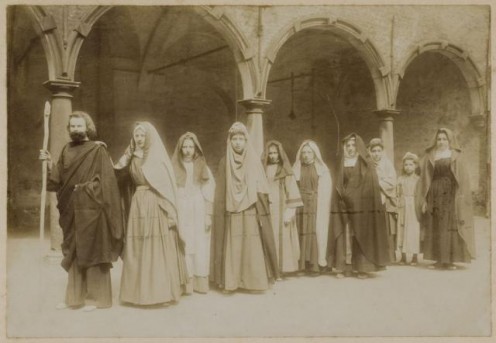
Read More about Down There and the Holy Blood of Bruges:
- The Holy Blood of Bruges, a New Jerusalem
Read all about "Down There" here!... The Holy Blood of Christ seems to have turned medieval Bruges into a Holy City. It's what, since the 19th century, made tourism popular in Bruges. But maybe this Holy City is not as holy as it seems... - The Holy Sepulchre of Bruges-la-Morte
Visiting the Church of the Holy Sepulchre in Bruges-La-Morte, the Venice of the North, is a strange and morbid experience. Not only because the Holy Grave is to be found here, or a statue of the dead Christ,... - Visiting Bruges-la-Morte, a medieval ghost city
One of those many timeless carriages, which are available to tourists, stopped for me. The coachman looked very, very old... but he offered me kindly a free ride. 'Sir,' I said, 'you who drives day and...
